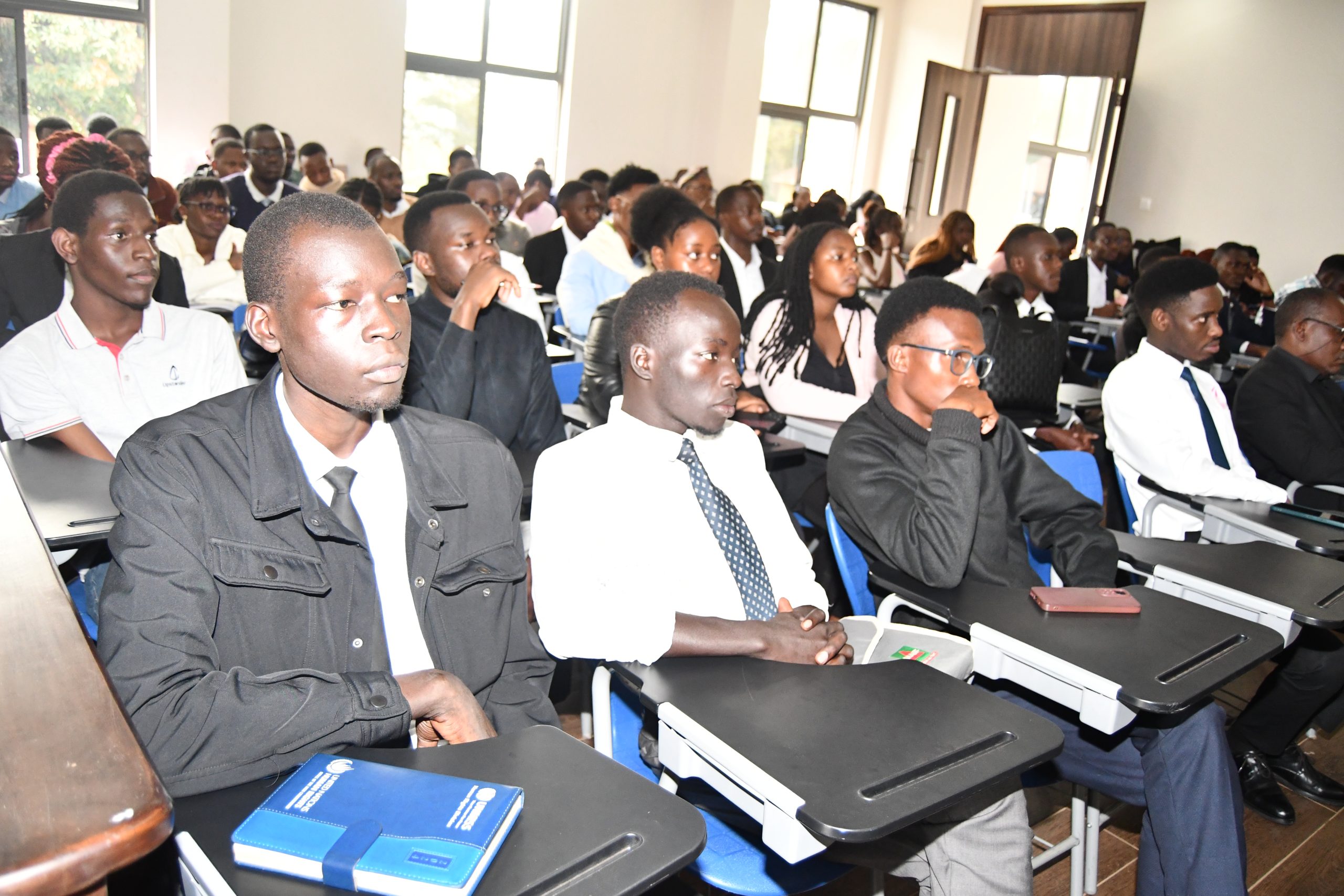Address Maternal Deaths, Government Urged
The School of Law, Makerere University in partnership with the Centre for Human Rights, University of Pretoria held the 5th Helen Kanzira Memorial Lecture on the 15th October 2015 at Imperial Royale Hotel, Kampala under the theme: “Exploring Uganda’s performance on the MDG’s in the area of Maternal Health: Achievements and Challenges?”
The lecture was aimed at commemorating the life and achievements of the late Helen Kanzira while highlighting and generating more discussion on maternal and reproductive health issues as they affect women in Africa.
Dr. Olive Sentumbwe-Mugisa, the Family Health and Population Advisor at the World Health Organisation gave a key note address, that was discussed by Prof. Ben Twinomugisha of the School of Law, Makerere University, Hon. Irene Ovonji- Odida, CEO FIDA-U and Mr. Moses Mulumba, Executive Director, Centre for Health, Human Rights and Development, (CEHURD).
Dr. Olive Sentumbwe-Mugisa said the public lecture was timely being held during the safe motherhood week when a lot of effort was being put in to bring about the desired change in addressing maternal death.
She noted with regret that the Millennium Development Goal number 5 is the least realised, which she attributed to a number of factors for instance many young girls are sexually active at an early age of 16 yet not protected. In Uganda 16 women die per day which in day to day explanation means that a commuter taxi full of women die, but sadly go un noticed, she added.
She commended the School of Law Makerere University and the University of Pretoria for opening up the debate on such a big challenge, which she described as a tragedy of our time.
Further in her discussion Dr. Sentumbwe Mugisa observed that the problem is compounded by HIV/AIDS which poses a major complication to pregnant women and the children. This is so because there is a negative trend that has reversed the earlier achievements in combating HIV/AIDS in Uganda. She noted that young people now are more affected and the ratio of boys to girls is narrowing as many more boys are infected. These have to be targeted with serious interventions she suggested.
The other factors that have lead to maternal death that she noted was death of women arising out of unskilled deliveries, at the hands of unskilled personnel.
She noted that total fertility rate is one of the stagnant indicators and yet the more pregnancies a woman gets, the more the chances of dying during delivery. She said after four children, the number that follows affects the physical, physiological and mental wellbeing of mothers, although pregnancy is seen as a normal event.
Dr. Sentumbwe Mugisa reported that although Uganda has achieved in the reduction of under five mortality, there has not been a reduction in neonatal deaths, with Uganda among the top five countries in neonatal mortality in Africa, which she described as a tragedy. She said this calls for more work because either mother or baby will die on the first day of birth or during the first week. The sad note is that when one pushes a child, there is a feeling that all is well, and few people stay close to the mother and the baby, she noted.
While highlighting some of the interventions that need to be strengthened, Dr. Sentumbwe said there is need to focus on the mother, which is a responsibility of many actors and sectors like access to education as well as ensuring the observance of the rights of the girls and women in the communities by according them the necessary environment. These may include resources at the health units to avert such maternal death that are largely related to bleeding, she said.
She said couples and individuals have the right to decide, get access to information and the right to scientific progress, explaining that complications arise out of the concept of three delays namely failure to make decisions, failure to access transport, and access to services
She pointed out a number of measures that Uganda has adopted to address the tragedy that include maternal death surveillance to document all death of mothers and their causes, support to marginalised and hard to reach areas among others.
The discussants of the paper included Prof. Ben Twinomugisha from School of Law Makerere University and Mr. Mulumba Moses Executive Director, Centre for Health, Human Rights and Development, (CEHURD).
They indicated that there is need for legal intervention given that despite the efforts in addressing the challenges of maternal mortality, a lot of resources are misappropriated.They indicated that lawyers, have a duty to lobby Government on a law on termination of pregnancy and access to safe abortion. They however noted that as much as Government has a duty to offer services, it lacks right priorities in the expenditure of the national resources, with a view that a lot more needs to be spent in the health sector.
They emphasized the importance of the law in the efforts of addressing the challenge at hand and that a lot of this is happening because of a failed state and a collapsed system. They noted that 80% of all cases against doctors are maternal deaths and that there is need to enforce implementation of the minimum health care package as well as calling upon the State to take up its obligation by invoking the law to hold the Government accountable.
The Vice Chancellor Makerere University, in a speech read for him by the Deputy Vice Chancellor in charge of Academics Prof. Ernest Okello Ogwang said the role of institutions of higher learning is to think, invent and create for the purpose of contributing to global advancement. He said the Helen Kanzira memorial public lecture is timely given the current global discourse on Reproductive Rights of Women generally and maternal health specifically in order to find lasting solutions.
He said Helen Kanzira personifies the countless women who die during pregnancy and childbirth, many of whom sadly go unnoticed.
The challenges of our health service delivery systems are known and often the rural underserved suffer the most, he noted. However, as far as maternal and reproductive health is concerned, the urban woman is also affected. This is an issue for all women everywhere and we must find sustainable solutions through our research and community outreach agenda.
The Ag. Principal School of law Dr. Damalie Naggita Musoke said Helen Kanzira gives a human face to the challenge of maternal death. She said Helen’s life and death should not be in vain. ‘We need to make a concerted effort to address this challenge, she added.
Dr. Damalie Naggita Musoke commended the Centre for Human Rights, a consortium of 13 Universities, for supporting such events annually. She said Helen Kanzira is remembered as a committed, brilliant law student in the then Faculty of law in 1995, whose life was lost while budding.
Ernest Kalibbala who talked on behalf of the family of Helen Kanzira commended the organisers of this memorial event and for bringing the lecture to Uganda, where Helen worked and lived. He described Helen as a friend of his, who was down to earth, focused and self driven. He regretted to note that Helen’s death was a result and is still a sign of lack of care, lack of facilities, while our leaders continue to give statistics of improvements, while answers will come too late, he said.
Eric Lwanga based at the University of Pretoria gave a brief background to the Helen Kanzira Lecture. He said Helen Kanzira was in the 2000 class of the Masters of Human Rights and Democratisation program at the University of Pretoria. She died in 2007 and the institution decided to honour her through annual lectures and the one in Kampala today is the 5th.



